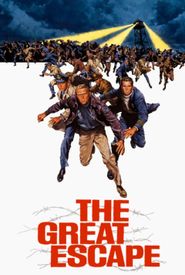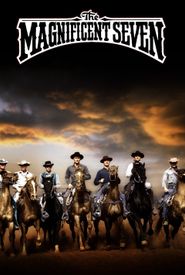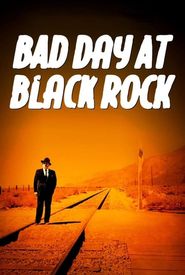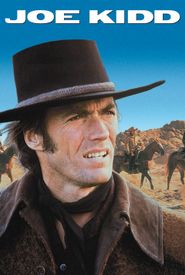John Sturges was an American film director, primarily remembered for his outstanding Western films. In 1992, Sturges was awarded a Golden Boot Award for his lifelong contribution to the Western genre.
Born in the village of Oak Park, Illinois, within the Chicago metropolitan area, Sturges started his film career in 1932 as a film editor. During World War II, he began directing documentaries and training films for the United States Army Air Forces.
Sturges made his directing debut in 1946 with the drama film "The Man Who Dared" by Columbia Pictures. His next film projects were the film noir "Shadowed" (1946) and the crime drama "Alias Mr. Twilight" (1946).
In 1947, Sturges directed "For the Love of Rusty", a film in the Rusty series, and "Keeper of the Bees", an adaptation of Gene Stratton-Porter's novel. He also directed the war documentary "Thunderbolt" (1947),which included actual combat footage from Operation Strangle.
Sturges' next film noir was "The Sign of the Ram" (1948),followed by the historical drama "Best Man Wins" (1949),an adaptation of Mark Twain's short story. His first Western was "The Walking Hills" (1949),which used film noir tropes in a new setting.
Sturges had a critically successful film with the biographical film "The Magnificent Yankee" (1950),which dramatized the life of Oliver Wendell Holmes Jr. He next directed the film noir "The Capture" (1950),the film noir "Mystery Street" (1950),and the sports drama "Right Cross" (1950).
In 1951, Sturges directed the crime drama "Kind Lady" (1951),a remake of a 1935 film, and the film noir "The People Against O'Hara" (1951),which starred Spencer Tracy. Sturges also co-directed the anthology film "It's a Big Country" (1951).
Sturges' biographical film "The Girl in White" (1952) dramatized the life of female surgeon Emily Dunning Barringer. He returned to the film noir genre with "Jeopardy" (1953),an adaptation of a radio play by Maurice Zimm.
Sturges directed the sports comedy "Fast Company" (1953),about an exceptional race horse, and the American Civil War-themed film "Escape from Fort Bravo" (1953). He had a career highlight with the thriller film "Bad Day at Black Rock" (1955),which combined elements from both film noir and the Western.
Sturges' next film projects included the treasure-hunting themed adventure "Underwater!" (1955),the historical drama "The Scarlet Coat" (1955),and the Western "Backlash" (1956). He also directed the adventure drama "The Old Man and the Sea" (1958),an adaptation of Ernest Hemingway's novella.
Sturges' World War II-themed war film "Never So Few" (1959) featured a cast of rising actors, including Frank Sinatra, Gina Lollobrigida, and Steve McQueen. He had another career highlight with the Western "The Magnificent Seven" (1960),a loose adaptation of the Japanese film "Seven Samurai".
Sturges' next film project was the law-firm drama "By Love Possessed" (1961),which included controversial themes such as rape, suicide, and embezzlement. He next directed the Western comedy "Sergeants 3" (1962),loosely based on the poem "Gunga Din" by Rudyard Kipling.
Sturges' next film was more sexually explicit: "A Girl Named Tamiko" (1962). Lead character Ivan Balin was a man who desperately wanted to emigrate to the United States, and used his sex-appeal to seduce women who may help him achieve his goal.
Sturges directed his first science fiction film at age 55, and that film was "The Satan Bug" (1965). The film depicted the manufacture of bio-weapons, and their potential release against American major cities. Sturges also directed the Western comedy "The Hallelujah Trail" (1965),about a predicted harsh winter threatening the whiskey supply of a frontier town.
Sturges' next film project was the Cold War thriller "Ice Station Zebra" (1968),loosely based on the missing experimental Corona satellite capsule (Discoverer II) which fell to Norway in 1959, and the efforts to recover it before it fell on Soviet hands. The film was mildly controversial, since it dramatized events that were still classified secret at the time of production.
Sturges' second science fiction film was "Marooned" (1969),depicting a potentially deadly accident affecting the Apollo program.


































































